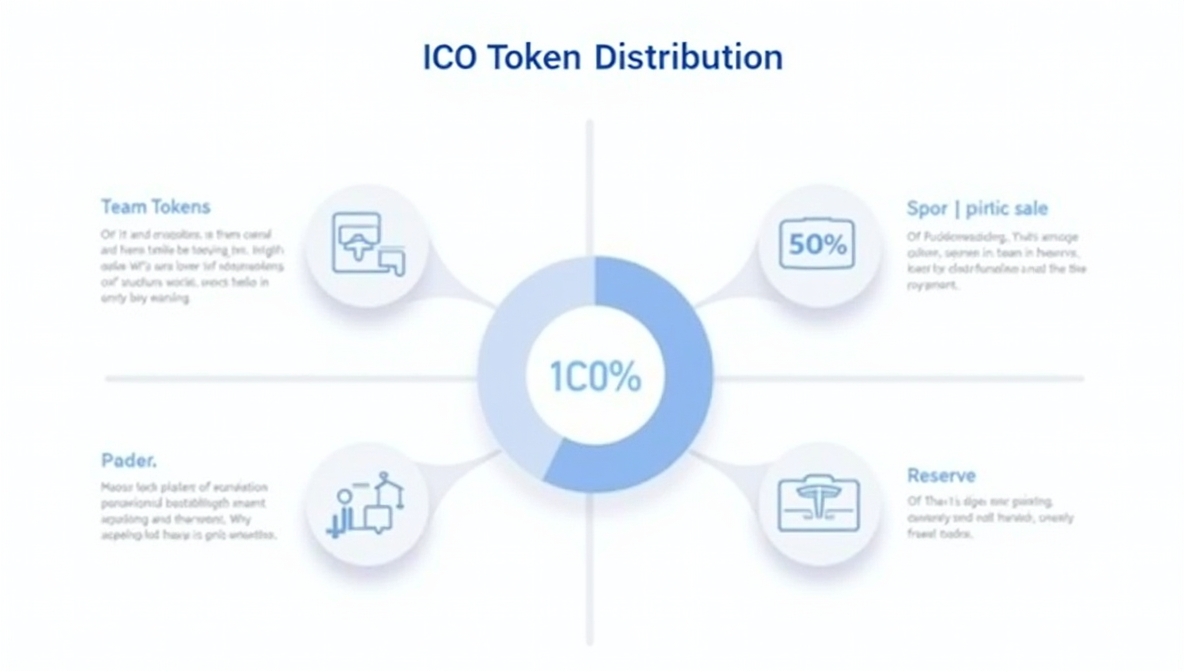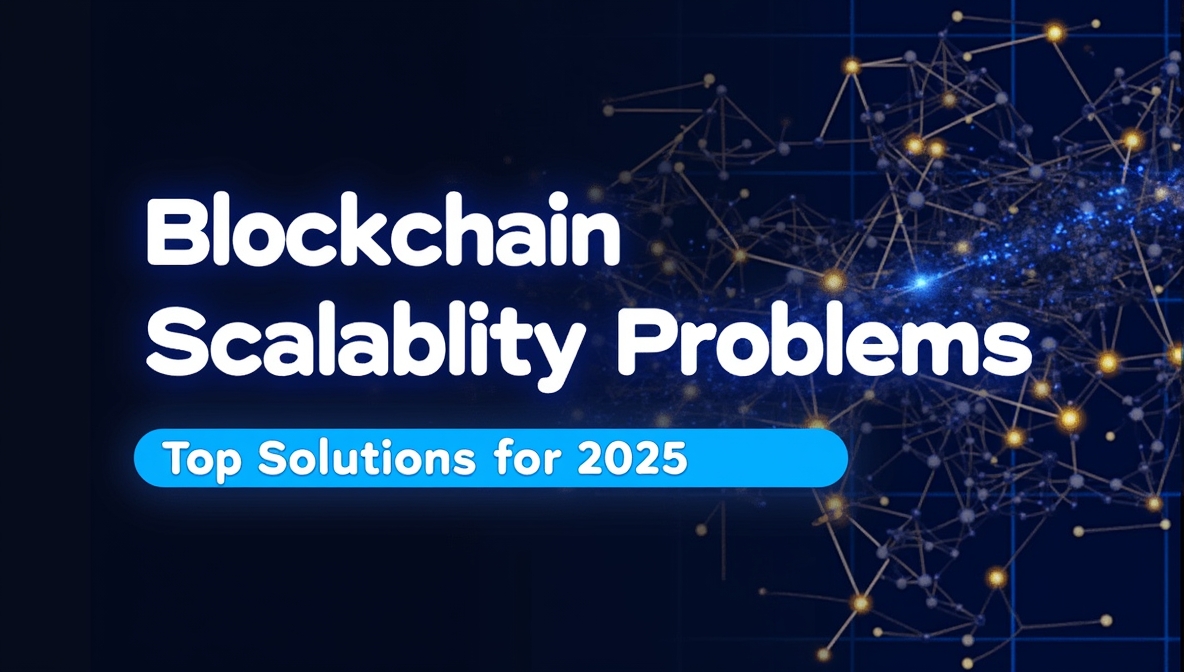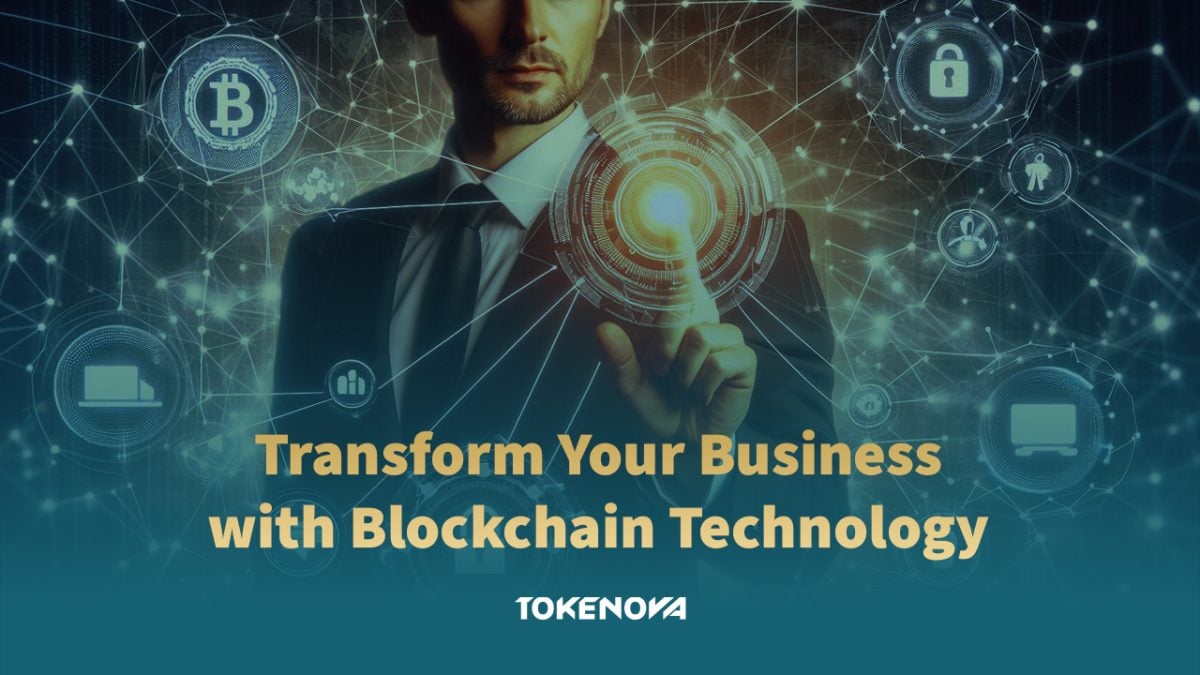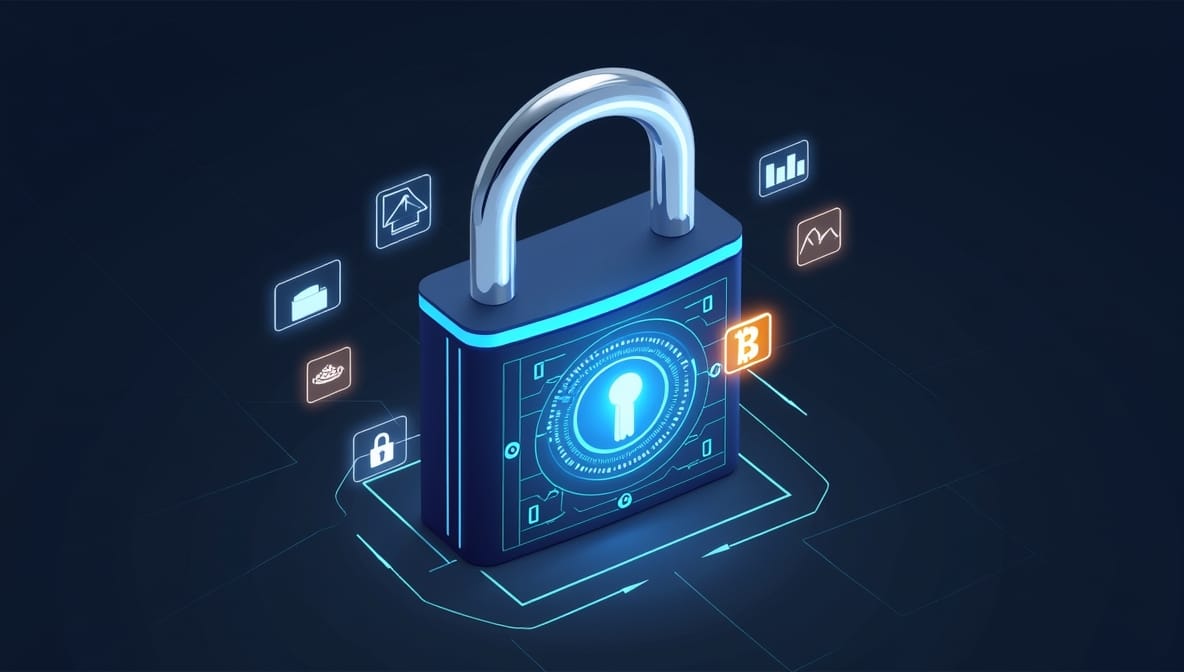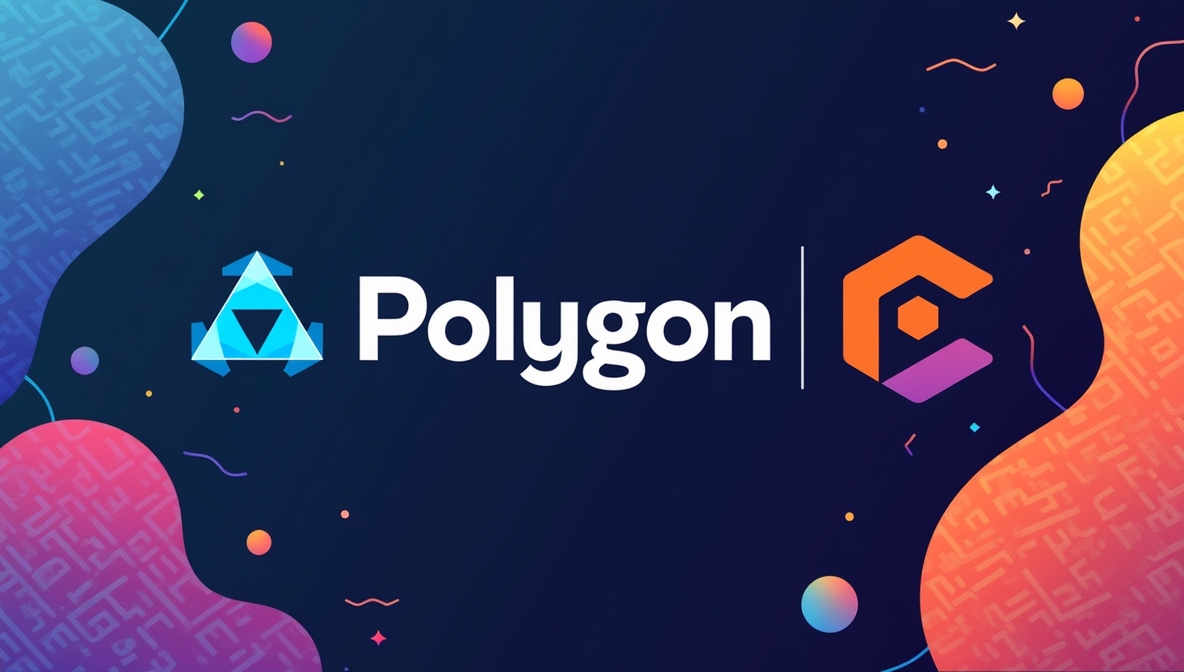Are you struggling with opaque decision-making processes within your organization? Are increasing resources being consumed to manage the complexities of evolving regulations? For agile startups, innovative tech companies, and businesses focused on sustainable growth, these are familiar challenges. However, the technology underpinning digital currencies offers a potentially more transparent, efficient, and inherently trustworthy approach to corporate governance. This is the promise of Blockchain-Enabled Corporate Governance and Regulation especially in Tokenova.
This is more than just a fleeting technological fad; it represents a fundamental shift in how businesses operate and interact with intricate regulatory environments. Imagine a system where transparency replaces the ambiguity of closed-door dealings. Consider a framework where accountability is not merely a compliance exercise but an embedded feature of the operational code. Envision efficiency moving from a strategic aspiration to a core element of daily operations, and trust evolving from a hard-earned asset to the bedrock of your organization’s long-term viability.
This in-depth exploration examines the transformative power of blockchain in corporate governance. We will analyze its mechanisms and the convergence of corporate governance principles with blockchain technology to forge a more dependable, robust, and effective future for businesses globally. The rapidly expanding field of Decentralized Finance (DeFi) provides a compelling example, where blockchain governance is transitioning from theoretical concepts to a practical instrument for managing sophisticated lending platforms, decentralized exchanges, and a wide array of other cutting-edge financial services.
Introduction to Blockchain Governance
Blockchain governance signifies a profound shift away from traditional, often top-down, methods of organizational management and control. It harnesses the foundational principles of blockchain technology decentralization, radical transparency, and cryptographic immutability to architect more democratic, resilient, and inherently accountable systems.
Unlike conventional governance structures, where authority is typically concentrated within a select group of individuals or a centralized body, blockchain governance distributes decision-making authority across a network of diverse participants, fostering a more inclusive and equitable environment.
What is Blockchain Governance?
Blockchain governance refers to the framework of rules, protocols, and decision-making processes that govern how a blockchain network or blockchain-based organization operates, evolves, and allocates resources. This includes activities such as proposing and implementing protocol upgrades, managing decentralized autonomous organizations (DAOs), and distributing network resources.
New governance models, such as futarchy (decision-making based on prediction markets) and quadratic voting, are gaining traction in blockchain ecosystems. These models aim to address issues like voter apathy and concentration of power among large token holders.
How Blockchain Governance Differs from Traditional Models
The fundamental distinction between blockchain governance and its traditional counterparts lies in the principle of decentralization. Traditional governance models, by their very nature, tend to concentrate power and decision-making authority within a hierarchical structure, often placing it in the hands of a select few individuals or a central governing body.
Conversely, blockchain governance deliberately distributes power across a network of participants, empowering a broader range of stakeholders and mitigating the risks associated with centralized control. This diffusion of power is often facilitated by sophisticated consensus mechanisms, ensuring that decisions are made collectively rather than unilaterally.
The Role of Consensus Mechanisms
Consensus mechanisms serve as the bedrock of blockchain governance, acting as the sophisticated algorithms that enable disparate participants within a blockchain network to reach a shared agreement on the validity of transactions and the overall state of the distributed ledger.
These mechanisms, which include well-established protocols like Proof-of-Work (PoW) and Proof-of-Stake (PoS), are meticulously designed to ensure that all participants adhere to the same predefined rules and that decisions are made through a collective and verifiable process, thereby bolstering the security, reliability, and integrity of the entire network.
New consensus mechanisms, such as Proof-of-History
(PoH) and Proof-of-Reputation, are being developed to address scalability and energy efficiency concerns. For example, Solana uses PoH to improve transaction speeds, while Proof-of-Reputation incorporates participants’ reputational scores into decision-making.
Transparency and Accountability in Blockchain Governance
Transparency and accountability are not merely desirable attributes in governance; they are the essential pillars upon which trust and legitimacy are built. Blockchain technology, with its inherent characteristics, serves as a powerful enabler of both. The immutable nature of blockchain records guarantees that all actions, decisions, and transactions are permanently documented and readily auditable, fostering a culture of responsibility and deterring malicious behavior.
Immutable Records for Enhanced Transparency
Every transaction, every decision, every modification to the state of a blockchain is meticulously recorded within a “block” of data. This block is then cryptographically linked to the preceding block, forming an unbroken and unalterable chain of records stretching back to the genesis block. This cryptographic linking and the distributed nature of the ledger ensure that once information is recorded, it becomes virtually impossible to tamper with, delete, or retroactively alter, providing an unparalleled level of transparency and fostering unwavering trust in the integrity of the data.
Read More: What Assets Can Be Tokenized?
Real-World Applications: Estonian e-Residency Program
A compelling and often-cited real-world application of blockchain’s transformative potential in governance is the pioneering Estonian e-Residency program. Estonia, a digital trailblazer, has strategically embraced blockchain technology to fortify its digital infrastructure and deliver transparent and remarkably efficient public services to its burgeoning community of e-residents, individuals from around the globe who can access Estonian services and conduct business within the EU remotely. This innovative program serves as a powerful testament to the practical benefits of leveraging blockchain to enhance governmental transparency, security, and efficiency.
Transparency in DeFi Lending Platforms
DeFi lending platforms operate on the principle of radical transparency, leveraging the inherent characteristics of blockchain to cultivate trust and confidence among their users. The fundamental rules governing these platforms, including loan terms, collateralization ratios, interest rate algorithms, and liquidation thresholds, are typically meticulously encoded within publicly auditable smart contracts deployed on the blockchain. This ensures that all participants have unfettered access to the same critical information, fostering a level playing field, reducing information asymmetry, and bolstering trust in the platform’s operational integrity and fairness.
Boosting Efficiency with Blockchain in Governance
The pursuit of efficiency is a constant imperative for organizations across all sectors, and blockchain technology offers a compelling suite of tools to achieve significant operational improvements within governance frameworks. By strategically automating processes, eliminating redundant intermediaries, and streamlining workflows, blockchain can unlock substantial cost savings and accelerate operational tempos.
Automating Processes with Smart Contracts
Smart contracts, those self-executing agreements meticulously written in code and immutably stored on the blockchain, represent a paradigm shift in how agreements are enforced and processes are executed. These intelligent contracts automatically trigger predefined actions when specific conditions are met, eliminating the need for manual intervention, reducing the potential for human error, and significantly mitigating the risk of disputes arising from ambiguous or poorly executed agreements. This inherent automation capability can dramatically improve the efficiency of a wide array of governance processes, from supply chain management to regulatory compliance.
Read More: What Assets Can Be Tokenized?
Blockchain in Supply Chain Management
The transformative application of blockchain technology in supply chain management provides a compelling and readily demonstrable example of the efficiency gains that can be realized. By meticulously tracking goods and materials as they traverse complex supply chains on an immutable blockchain, companies can achieve unprecedented levels of transparency, significantly reduce instances of fraud and counterfeiting, and dramatically streamline complex logistics operations, ultimately leading to substantial cost savings, enhanced product integrity, and faster delivery times.
Global logistics giants like Maersk have been at the forefront of implementing blockchain-based solutions to optimize their intricate global shipping operations, realizing significant efficiency gains and cost reductions.
Efficiency Gains in DeFi Lending
Decentralized finance (DeFi) lending platforms exemplify the remarkable efficiency gains enabled by blockchain. In 2024, the total value locked (TVL) in DeFi lending reached $94.9 billion (finance), reflecting a 75.1% year-to-date increase. These platforms automate the entire loan lifecycle, including loan origination, collateral management, interest accrual, and liquidation processes, all managed through smart contracts.
This automation eliminates the need for manual intervention, minimizes paperwork, and accelerates transaction speeds compared to the traditional lending system. The growing adoption of DeFi highlights blockchain’s potential to revolutionize financial services by enhancing accessibility, reducing costs, and streamlining operations.
Read More: What Assets Can Be Tokenized?
Decentralized Autonomous Organizations (DAOs)
Decentralized Autonomous Organizations (DAOs) represent a groundbreaking and increasingly influential model for organizational structure and governance in the digital age. These innovative entities operate based on a set of meticulously defined rules that are transparently encoded within smart contracts deployed on a blockchain, with decision-making authority deliberately distributed among a community of token holders, rather than being concentrated in a traditional hierarchical structure.
What Are DAOs?
At their core, DAOs are essentially internet-native organizations that are fundamentally governed by transparent and immutable code. Their operational rules, decision-making protocols, and resource allocation mechanisms are all openly and verifiably encoded on a blockchain, and actions are automatically executed when predefined conditions are met, without the need for intermediaries or traditional hierarchical management structures. This inherent transparency and automation foster a high degree of trust and accountability within the organization.
Uniswap and Decentralized Governance
Uniswap, a leading decentralized exchange (DEX) operating on the Ethereum blockchain, provides a compelling and widely recognized case study of successful DAO implementation and the power of decentralized governance in action. Holders of the UNI governance token possess the right to propose, vote on, and influence critical decisions related to the protocol’s ongoing development, the structure of trading fees, and the strategic management of the platform’s treasury, demonstrating the potential for truly community-driven governance in large-scale decentralized systems.
The Role of Governance Tokens in DAOs
Governance tokens serve as the lifeblood of many DAOs, acting as digital assets that confer upon their holders the right to actively participate in the organization’s governance processes. These tokens typically grant holders the ability to propose new initiatives, vote on proposed changes to the protocol or its operations, and influence the overall direction of the DAO. This mechanism not only incentivizes active participation from the community but also ensures that the organization’s future is shaped by those who have a vested interest in its success.
Blockchain for Securities: Transforming Capital Markets
Through the innovative application of security tokenization, blockchain technology is poised to revolutionize capital markets. This approach promises streamlined processes, significant cost reductions, and enhanced transparency. Reflecting this potential, the global security token market is forecast to expand considerably, growing from USD 1.91 billion in 2024 to USD 17.44 billion by 2033, exhibiting a robust CAGR of 27.3%.
Tokenization of Securities
Tokenization of securities involves the process of representing ownership rights of traditional financial instruments, such as publicly traded stocks, corporate bonds, and other forms of equity or debt, as easily transferable digital tokens on a blockchain. This digital representation unlocks a host of new possibilities for how securities are issued, traded, and managed.
Benefits of Security Tokenization
The tokenization of securities offers a compelling array of benefits that have the potential to reshape capital markets. These advantages include significantly increased liquidity for traditionally illiquid assets, a substantial reduction in the costs associated with intermediaries such as brokers and clearinghouses, enhanced transparency in ownership and trading activity, and greater accessibility for a wider range of investors, potentially democratizing access to investment opportunities.
Read More: What Assets Can Be Tokenized?
tZERO and Security Token Trading
tZERO stands out as a pioneering and prominent platform at the forefront of the security token revolution, providing a regulated and compliant marketplace for investors to seamlessly buy, sell, and trade digital representations of traditional financial assets. This real-world implementation showcases the practical application of blockchain technology in transforming the landscape of capital markets, offering a glimpse into a more efficient and accessible future for securities trading.
Proxy Voting on the Blockchain: Empowering Shareholders
Traditional proxy voting systems, while a cornerstone of corporate governance, are often characterized by inefficiencies, logistical complexities, and a lack of transparency, potentially hindering effective shareholder participation and undermining the democratic principles of corporate decision-making. Blockchain technology offers a compelling solution to these challenges, providing a secure, transparent, and efficient alternative that has the potential to truly empower shareholders.
Challenges of Traditional Proxy Voting
The conventional proxy voting processes are often plagued by a multitude of challenges, including cumbersome procedures that can deter participation, significant time delays in vote tabulation, susceptibility to errors or even fraudulent activities, and a general lack of transparency that can erode trust among shareholders regarding the fairness and accuracy of the voting outcomes.
Blockchain Solutions for Shareholder Engagement
Blockchain-based voting systems offer a paradigm shift in shareholder engagement, providing a secure and transparent mechanism for shareholders to exercise their voting rights. The inherent immutability of the blockchain ensures that votes, once cast, cannot be tampered with or altered, while the transparency of the system allows for public verification of the voting process, fostering greater trust and confidence in the integrity of the outcomes.
Nasdaq’s Blockchain Voting Initiatives
Nasdaq, a leading global exchange, has been actively exploring the potential of blockchain technology to revolutionize proxy voting through its innovative Linq platform. This initiative demonstrates a forward-thinking approach to leveraging blockchain’s capabilities to enhance shareholder engagement, streamline voting processes, and improve the overall efficiency and transparency of corporate governance.
Tokenization of Assets: Unlocking New Economic Opportunities
Beyond the realm of traditional financial securities, blockchain technology unlocks a universe of new economic opportunities through thetokenization of a vast and diverse range of assets, encompassing both tangible possessions like real estate and fine art and intangible assets such as intellectual property rights and valuable commodities.
What is Asset Tokenization?
Asset tokenization is the transformative process of representing ownership rights to a specific asset, whether it be a physical object or an intangible right, as a unique and verifiable digital token on a blockchain. This digital representation allows for the fractionalization of ownership, the creation of new marketplaces, and enhanced liquidity for traditionally illiquid assets.
Read More: What Assets Can Be Tokenized?
Tokenizing Tangible and Intangible Assets
The potential applications of asset tokenization are vast and far-reaching. Tangible assets, such as high-value real estate properties and rare works of art, can be tokenized to enable fractional ownership, making these investment opportunities accessible to a wider pool of investors. Similarly, intangible assets, including valuable patents, copyrights, and trademarks, can be tokenized to create new avenues for managing, licensing, and monetizing intellectual property.
Art Blocks and Digital Art Tokenization
Art Blocks stands as a compelling example of how blockchain technology is revolutionizing the art world through digital art tokenization. This innovative platform empowers digital artists to create and sell unique, provably scarce digital artworks represented as non-fungible tokens (NFTs) on the blockchain, opening up new revenue streams for creators and fostering a vibrant ecosystem for digital art collection and appreciation.
Regulatory Compliance with Blockchain: Building Trust and Transparency
While the evolving regulatory landscape presents a key consideration for the widespread adoption of blockchain in governance, this technology also offers a unique opportunity to enhance regulatory compliance. Rather than being a roadblock, blockchain can foster greater trust and transparency between organizations and regulatory bodies. The EU’s MiCA regulation and U.S. SEC guidelines are actively shaping this environment, focusing on consumer protection and market integrity.
Blockchain for GDPR Compliance
Blockchain’s inherent characteristics of transparency and immutability can be strategically leveraged to aid organizations in their efforts to comply with stringent data privacy regulations such as the General Data Protection Regulation (GDPR). The ability to maintain a clear and auditable record of data provenance, consent, and processing activities on a blockchain can significantly enhance accountability and transparency. However, challenges remain in fully aligning blockchain’s inherent characteristics with certain GDPR requirements, such as the “right to be forgotten,” necessitating careful consideration and innovative solutions.
Anti-Money Laundering (AML) and Blockchain
The transparency of blockchain technology, often perceived as a challenge for privacy, can be strategically harnessed to bolster Anti-Money Laundering (AML) efforts. The ability to trace transactions on a public and immutable ledger can provide valuable insights for identifying suspicious activity, tracking the flow of funds, and preventing illicit financial activities. However, the development and implementation of privacy-enhancing technologies on blockchain networks are also crucial to balance transparency with the need for user privacy and data protection.
DeFi Platforms and Regulatory Challenges
DeFi platforms, with their decentralized and often pseudonymous nature, face significant and ongoing regulatory challenges as governments and financial authorities grapple with how to appropriately oversee this nascent and rapidly evolving industry. Regulators are actively exploring various approaches to apply existing regulatory frameworks to DeFi or to develop new, tailored regulations that address the unique characteristics and risks associated with decentralized finance. The DeFi industry is also proactively working on solutions to address these concerns, such as the development of decentralized Know Your Customer (KYC) and Anti-Money Laundering (AML) solutions that can enhance compliance without compromising the core principles of decentralization.
Read More: What Assets Can Be Tokenized?
Challenges of Blockchain Governance: Navigating the Path Forward
Despite the immense transformative potential of blockchain governance, it’s crucial to acknowledge and address the inherent challenges that must be overcome to ensure its widespread adoption, long-term sustainability, and overall effectiveness.
Scalability Issues in Blockchain Networks
Scalability remains a significant technical hurdle for many blockchain networks, particularly public and permissionless blockchains. The limited number of transactions per second (TPS) that these networks can currently process can lead to network congestion, increased transaction fees, and slower confirmation times, potentially hindering their usability for large-scale, high-throughput applications and impacting the user experience.
Interoperability Between Blockchains
The lack of seamless interoperability between different blockchain networks presents another significant challenge to the widespread adoption of blockchain governance. The inability for disparate blockchains to effectively communicate and seamlessly share data creates information silos, limits the potential for cross-chain collaboration, and hinders the development of truly interconnected and decentralized ecosystems.
Regulatory Uncertainty and Legal Frameworks
The evolving regulatory landscape surrounding blockchain technology and the current lack of clear and consistent legal frameworks for blockchain governance and decentralized autonomous organizations (DAOs) create a significant degree of uncertainty for businesses and individuals seeking to adopt these innovative technologies. The establishment of clear, well-defined, and globally harmonized regulations is essential to foster innovation, encourage responsible adoption, and ensure legal compliance within the blockchain space.
Read More: What Assets Can Be Tokenized?
Future of Blockchain Governance: A Glimpse into Tomorrow
The future of blockchain governance is brimming with potential, fueled by ongoing technological advancements and a growing understanding of its transformative capabilities. The convergence of blockchain with other cutting-edge technologies promises to unlock new levels of efficiency, security, and decentralization in governance systems.
Integration of AI and Machine Learning
The intelligent integration of artificial intelligence (AI) and machine learning (ML) algorithms into blockchain governance mechanisms holds the promise of creating more efficient, data-driven, and adaptive decision-making processes. AI could be leveraged to analyze vast amounts of on-chain data, identify emerging patterns and anomalies, and provide valuable insights to inform governance proposals and voting decisions, leading to more informed and effective outcomes.
The Role of Decentralized Identity Solutions
Decentralized identity (DID) solutions, built upon the foundation of blockchain technology, are poised to play a pivotal role in enhancing trust, security, and privacy within blockchain governance ecosystems. These self-sovereign identity systems will empower individuals and organizations to control their own digital identities, securely manage their credentials, and seamlessly participate in governance processes without relying on centralized intermediaries, fostering a more secure and privacy-preserving environment.
The Future of DeFi Lending
The future trajectory of DeFi lending is likely to be characterized by continued innovation in risk management methodologies, with the potential integration of sophisticated AI-powered risk assessment tools to better evaluate borrower creditworthiness and collateral valuation. Furthermore, the development and adoption of decentralized insurance mechanisms will provide an added layer of security and protection for lenders and borrowers, while more intuitive and user-friendly interfaces will be crucial for driving wider adoption and mainstream acceptance of DeFi lending platforms.
Read More: What Assets Can Be Tokenized?
Strategic Insights for Implementation: A Practical Guide
Implementing blockchain governance is not merely a matter of adopting new technology; it requires careful strategic planning, a deep understanding of the underlying principles, and a commitment to a phased and iterative approach. Here are some key strategic considerations for organizations contemplating the adoption of blockchain governance.
Defining Governance Objectives
The crucial first step in implementing blockchain governance is to clearly articulate and define your organization’s specific governance objectives. What precise problems are you aiming to solve by adopting blockchain governance principles and technologies? What tangible outcomes do you realistically hope to achieve through this implementation? A clear understanding of your objectives will guide your strategy and ensure that your efforts are focused and effective.
Starting with Pilot Projects
Given the novelty and complexity of blockchain governance, it is generally advisable for organizations to begin their journey with carefully scoped and well-defined pilot projects. This allows for hands-on experimentation with the technology, the opportunity to build internal expertise and capacity, and the ability to learn and adapt based on real-world experiences before committing to a full-scale implementation across the entire organization.
Engaging Legal Counsel for Compliance
Engaging with experienced legal counsel early and often throughout the blockchain governance implementation process is absolutely crucial. Navigating the complex and often ambiguous legal and regulatory landscape surrounding blockchain technology and decentralized organizations is essential to ensure that your initiatives are compliant with all applicable laws and regulations, mitigating potential legal risks and ensuring long-term sustainability.
Read More: What Assets Can Be Tokenized?
Tokenova: Your Blockchain Governance Advisory Partner
Navigating the complexities of blockchain adoption for corporate governance requires expert guidance and a deep understanding of both the technology and the evolving regulatory landscape. At Tokenova, we provide tailored consulting and advisory services to help your organization strategically implement blockchain solutions that align with your specific needs and objectives. From the initial assessment of your current governance structure and the development of a customized blockchain strategy to the design, development, and implementation of bespoke blockchain solutions, our experienced team empowers you to unlock the transformative potential of blockchain and build a more transparent, efficient, and trustworthy organization.
Conclusion
Ultimately, blockchain-enabled corporate governance represents a profound transformation, not just a technological upgrade. It offers a unique opportunity to build trust and transparency at the core of organizational operations in the digital age. Leveraging decentralization, transparency, and immutability, blockchain empowers more resilient, efficient, and accountable governance. From the innovative structures of DAOs to the evolving landscape of tokenized securities, blockchain is actively reshaping business and institutional frameworks. While challenges like scalability and regulatory clarity remain, the continuous evolution of blockchain technology, including Layer 2 solutions and AI-driven tools, paves the way for broader adoption. Looking ahead, the synergy between blockchain and technologies like AI and decentralized identity promises even more robust governance models. Proactive adoption of blockchain governance positions organizations to thrive in an increasingly digital and decentralized world. Blockchain is not merely a tool for better governance; it’s a catalyst for a more transparent, efficient, and trustworthy global economy. Embrace this transformative potential – the future of governance is decentralized, and the time to act is now.
Read More: What Assets Can Be Tokenized?
Key Takeaways
Decentralized Governance:
Blockchain governance replaces traditional hierarchical models with decentralized systems, distributing decision-making power across a network of participants. This fosters greater inclusivity, transparency, and accountability.
Transparency and Trust:
Blockchain’s immutable ledger ensures that all actions, decisions, and transactions are permanently recorded and auditable. This builds trust among stakeholders and reduces the risk of fraud or manipulation.
Efficiency Through Automation:
Smart contracts automate processes, eliminate intermediaries, and reduce human error, leading to significant cost savings and faster operations in areas like supply chain management, regulatory compliance, and financial services.
Decentralized Autonomous Organizations (DAOs):
DAOs are internet-native organizations governed by transparent, code-based rules. They empower token holders to participate in decision-making, creating a truly community-driven governance model.
Tokenization of Assets:
Blockchain enables the tokenization of both tangible (e.g., real estate, art) and intangible assets (e.g., intellectual property), unlocking new economic opportunities by enabling fractional ownership and creating more liquid markets.
Revolutionizing Capital Markets:
Security tokenization streamlines processes, reduces costs, and enhances transparency in capital markets, making it easier to trade and manage traditional financial instruments like stocks and bonds.
Empowering Shareholders:
Blockchain-based proxy voting systems provide a secure, transparent, and efficient way for shareholders to participate in corporate decision-making, enhancing corporate democracy.
Regulatory Compliance:
Blockchain’s transparency and immutability can help organizations comply with regulations like GDPR and AML, though challenges like the “right to be forgotten” must be addressed.
Challenges to Overcome:
- Scalability: Many blockchain networks struggle with high transaction volumes.
- Interoperability: Seamless communication between different blockchains is still a work in progress.
- Regulatory Uncertainty: Clear and consistent legal frameworks are needed for widespread adoption.
Future Trends:
AI and Machine Learning: Integration with blockchain will enable data-driven governance decisions.
Decentralized Identity (DID): Self-sovereign identity systems will enhance privacy and security.
DeFi Innovation: Decentralized finance will continue to evolve with better risk management and user-friendly interfaces.
Strategic Implementation:
Organizations should start with pilot projects, define clear governance objectives, and engage legal counsel to ensure compliance when adopting blockchain governance.
A Transformative Shift:
Blockchain governance is not just a technological upgrade it’s a fundamental shift toward building more transparent, efficient, and trustworthy systems that are better equipped to handle the complexities of the modern world.
References:
Blockchain for enhancing transparency and trust in government registries
Organizational Building Blocks for Blockchain Governance: A Survey of 241 Blockchain White Papers
How does blockchain technology fundamentally ensure transparency in corporate governance processes?
Blockchain technology ensures transparency in corporate governance by recording all relevant transactions, decisions, and data on an immutable and distributed ledger. This means that once information is recorded on the blockchain, it cannot be altered, tampered with, or deleted, and it is readily accessible to authorized participants, creating an unparalleled level of transparency and fostering greater trust among stakeholders.
What are the primary benefits of utilizing Decentralized Autonomous Organizations (DAOs) for organizational governance and decision-making?
The primary benefits of utilizing DAOs for organizational governance include significantly increased transparency, as all governing rules and decision-making processes are explicitly encoded on the blockchain and publicly auditable; enhanced accountability, as actions are automatically executed based on the predefined code, reducing the potential for human error or manipulation; and greater community involvement, as token holders are empowered to participate in shaping the organization’s direction through voting and proposal mechanisms.
What are the most significant challenges that need to be effectively addressed to facilitate the wider adoption and mainstream acceptance of blockchain governance solutions?
The most significant challenges that need to be overcome for the wider adoption of blockchain governance include effectively addressing scalability issues to enable blockchain networks to handle the transaction volumes required for large-scale applications; ensuring seamless interoperability between different blockchain networks to foster greater collaboration and data sharing; and navigating the complex and evolving regulatory landscape to establish clear and consistent legal frameworks for blockchain-based organizations and digital assets.





